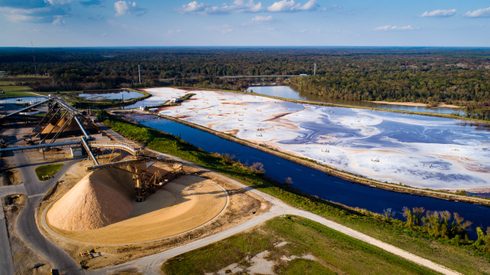As sustainability becomes woven into every aspect of business operations, how can stakeholders throughout the forest products value chain assist customers in achieving their sustainability objectives?
In this interview, we delve into the critical role of forest management, the ongoing push towards recyclability in packaging, and the impact of legislative changes in recycling on producers and consumers with Terry Webber, Vice President of Industry Affairs at American Forest and Paper Association (AF&PA).
Watch the full interview or read the summary below.
How can containerboard producers work with customers to meet their sustainability goals?
Containerboard and other paper-based packaging offer brands and retailers a compelling sustainability story. With high recycling rates and significant use of recycled content, no other material matches their sustainability attributes.
At the AF&PA, we have developed resources to help companies navigate these benefits with their customers. For instance, we’ve created a tool called ‘Design Guidance for Recyclability’, which provides data for packaging designers and consumer brands to better understand how non-fiber elements, such as coatings and additives, impact the recyclability of paper-based packaging. In addition, we also provide access to recycling data to support these efforts.
There is growing consumer demand for sustainable solutions and a lot of this surrounds recyclability. Concerns about the environmental impact of different materials, litter and waste escaping into the environment are also increasing. Paper-based products offer a competitive solution to these issues from a sustainability perspective.
How are North American paper producers leading the drive toward sustainable practices?
Our industry takes a comprehensive approach to sustainability. AF&PA runs a program called ‘Better Practices, Better Planet 2030: Sustainable Products for a Sustainable Future’, which are sustainability goals that target five major areas for the forest products industry. These include:
- Reducing greenhouse gas (GHG) emissions
- Advancing a circular value chain through the production of renewable and recyclable products
- Striving for zero workplace injuries and reducing serious injuries and fatalities (SIFs)
- Advancing sustainable water management throughout manufacturing operations
- More resilient US forests and sustainability of forest fiber
Forest management is a crucial foundation of our industry’s work. It plays a significant role in the supply of raw materials for paper and paper-based packaging production in the US. We take pride in our 2030 goals, which have transitioned our previous 2020 goals. These new goals take a more holistic view of how to advance forest resilience and emphasize third-party certification of sustainable fiber, ensuring our commitment to environmental sustainability.
What should consumers know about the sustainability of the packaging they buy?
Packaging is one of the important components of the overall impact of consumer products and it plays a crucial role in ensuring products arrive safely, undamaged, and unspoiled to consumers.
Despite being often overlooked, from cradle to grave, paper offers one of the most sustainable packaging solutions. This is due to our renewable and sustainable raw material source from well-managed forests, the robust recycling infrastructure and demand for recovered fiber use in packaging, as well as the high recycling rate after their use. It is hard to find a more sustainable material option in the marketplace.
Take a look at what sustainability attributes are important to packaging buyers today.
Are there any legislation changes ahead for recycling?
The trend towards extended producer responsibility is becoming more evident. Four states have already adopted the Extended Producer Responsibility (EPR) legislation for packaging – Maine, Oregon, Colorado, and California – and it’s likely to spread even further across the US market.
Recyclability has become an expectation from a policy perspective. The idea is simple: if a material isn’t easily recycled, collected, sorted and processed, it should not be put on the market. And let’s not forget the final, crucial step of re-manufacturing the material into a new product.
Take Chicago as an example. In July 2023, the city announced that it was adding paper cups to its recycling program. This means paper cups can now be collected, sorted, and processed just like other recyclable materials.
Chicago joins several other major cities, including New York City, Washington DC, Denver, San Francisco, and Seattle, in accepting cups for recycling. While we’re still in the early stages of this initiative, it’s seen as a significant priority for our industry.
Interested in learning more about paper packaging market developments and trends in the industry? Speak to our team today and find out how we can help you stay ahead of the competition.






